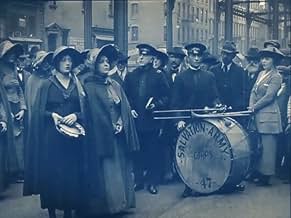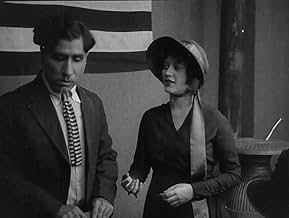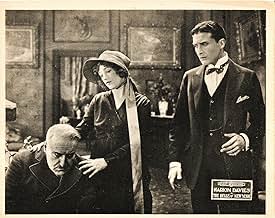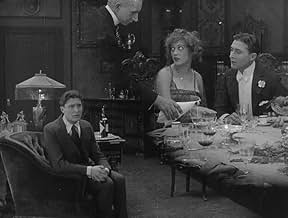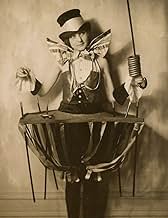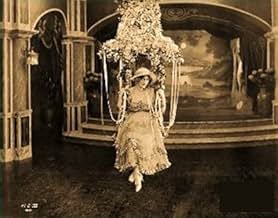Having looked at the 20 minutes of this movie that survive, and are an extra on Ed Lorusso's DVD of BURIED TREASURE (1921), I am forced into a reappraisal -- of William Randolph Hearst.
Raymond Bloomer is a rich man's son who cares for two things: moral show girl Marion Davies and the bottle. When Marion and his valet, Etienne Giradot, warn him off the latter, he goes on a toot, winding up at the blind pig run by the mob about to close down the Salvation Army office across the street -- where Marion is now banging the tambourine, and looking absolutely fetching, of course. That, and a brief bit of Ziegfeld showgirls doing a routine -- supposedly shot on the roof of the New Amsterdam by Ziegfeld himself -- are all that survive.
The problem is that it's all a stately bore. No one moves. Oh, the camera occasionally pans five degrees to follow a character across a composition, but the composition, composed of ten or so people, doesn't change. Occasionally a trolley will come into view in the background, which just emphasizes that things are happening -- but this movie doesn't care about them. All movement in the movie is achieved by editorial cuts. It's dead and dull.
It might do at a factory like Universal, where they turned out cheap movies that played the neighborhood circuit, two days at one theater, then across town for a day at another. You want your name in lights, Marion? You want to be a star? That's why I've been forced to reappraise Hearst. We who are fans of Miss Davies have long said that she would have become a star without him. Having seen the remnants of this movie, my conclusion is she would have lasted two years, another three in supporting roles, then gone. Because a star needs two things: luck, a string of hits to put her name at the top of the bill; and some one interested in her career to keep it there. Hearst was the one who wanted to keep it there and he did what he did so well: he spent money and hired the best. Anita Loos and John Emerson to write; Alan Dwan to direct; and, as Marion gained in confidence and the returns justified the costs, eventually he spent a million dollars on WHEN KNIGHTHOOD WAS IN FLOWER. Here's a block-long set, Marion. Clown your way out of that!
And she did. But she never would have done it without Hearst. She would have been in more dreadful little soapers like this one and we never would have heard of her, not even as the butt of Orson Welles' ill-humored joke in CITIZEN KANE.

